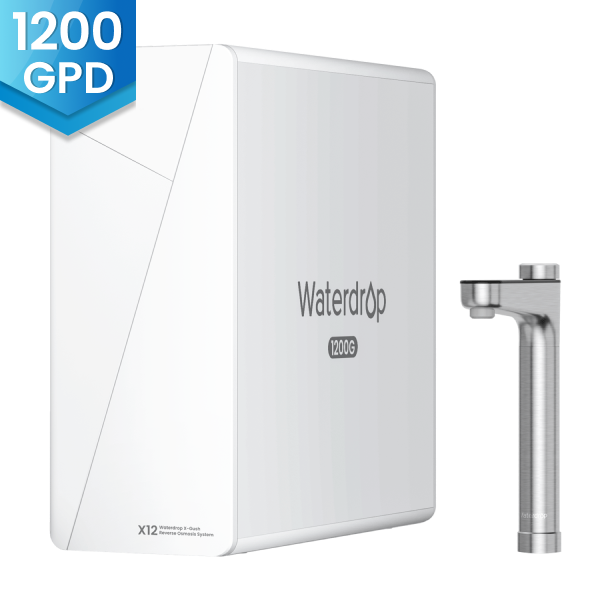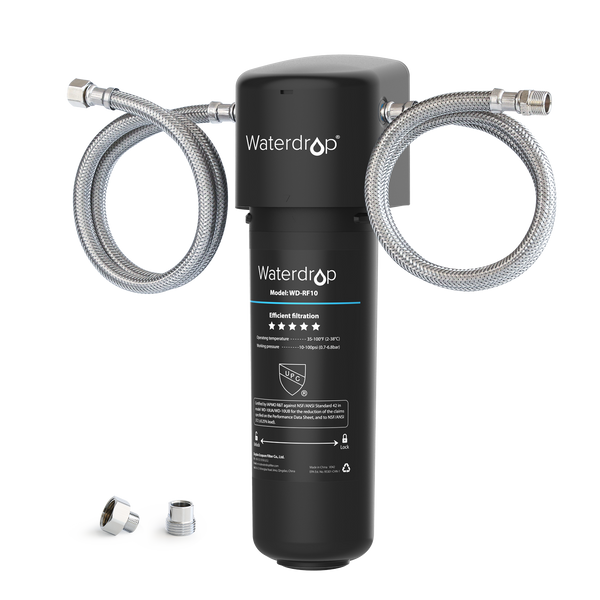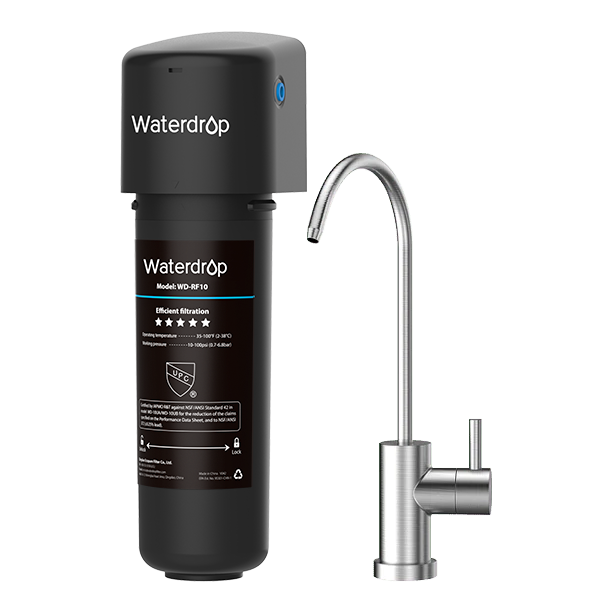5 Reasons Why Testing Your Water Is So Important
由 Dr. Jonathan Doyle - Updated December 08, 2022
Most people don’t pay much thought to what their drinking water contains. However, testing water used for a
variety of purposes (including chemical spraying, filling an aquarium, livestock watering, or drinking water)
ensures that water quality is suitable for its intended purpose.
This guide lists which factors commonly affect water quality, and the 5 reasons why testing water
is so important.
Factors Affecting Water Quality
There are several factors that are known to affect water quality:
Water Source
The source of your water determines
what it contains. Different regions have different geologies, and some water naturally contains larger
quantities of minerals, metals, and ions. Surface water sources are more likely to be affected by pollution and
runoff than groundwater (below-ground) sources.
Surface Runoff
Surface runoff—the flow of water on the ground, caused by rainwater, snowfall, or flooding —may carry
agricultural chemicals, microorganisms like bacteria, and manmade contaminants like petroleum, into a water
supply, affecting water quality.
Air Pollution
When rainwater falls through the air, smokes, dusts, gases, fumes, and mists from the air are picked up by the
rain. This rain then travels into rivers and underground aquifers, altering their water quality.
Pipe Age and Materials
The materials used in water pipes, and the age of the pipes, determine whether the pipes are prone to rust and
scale, and whether the’re likely to corrode and release compounds into water. Certain types of water pipes are
more prone to leaching than others, introducing contaminants that affect water quality.
Water Storage Method
The method of storing water, or whether water is stored at all, may affect its quality. Water storage facilities
are prone to microbiological activity, and steps must be taken to reduce the risk of germs and pathogens in
stored water.

Why Testing Your Water Is Needed
Here are the top 5 reasons why testing your water is needed.
To Check That It’s Safe
Raw, untreated water contains traces of potentially dangerous contaminants, like heavy metals, pesticides and
herbicides, volatile organic compounds, pharmaceuticals, and bacteria. Depending on whether you use city or well
water, your water may be treated in advance by your water supplier, or not treated at all.
Testing your water can determine whether or not it’s safe for use. This is especially important if you plan to
drink your water. Even municipal water may contain trace amounts of health-harmful impurities, and sometimes
these water supplies become contaminated to nobody’s knowledge.
To Address Contaminant Issues
You won’t know what your water contains until you test it. Only when you review the test results can you
determine whether, and how, your water should be treated.
For instance, if you discover that your water has a high iron content, you can use an iron filter to remove the
metal. Or, if your water contains a lot of hardness minerals, you can use a water softener to prevent limescale.
It’s often impossible to guess what your water contains, and choose a suitable treatment method, until you
perform a water test.
To Ensure It’s Suitable for Its Intended Use
The quality of your water will determine whether or not it’s suitable for its intended use. Different occasions
require water of varying levels of quality. Testing is especially important if your water will be used for
drinking by humans and animals.
In some manufacturing and industrial processes, water may need to be completely purified. Manufacturers can test
their water to make sure it’s entirely free from impurities before use.
To Track Changes Over Time
Water quality fluctuates over time, or even suddenly. Your water may taste, smell, and look the same regardless
of quality, so these changes may go unnoticed. The best way to track changes to your water quality is to test
your water periodically.
Regular testing is especially essential for well owners. The Environmental Protection Agency (EPA) recommends
annual water testing for nitrates, total coliform bacteria, total dissolved solids, pH levels, or more frequent
testing if you replace well components or notice a difference in your water quality.
To Check Whether Water Treatment Is Working
If you install a water treatment system to reduce or remove certain contaminants from your water, you can
conduct a before-and-after water test to check that the system is working as anticipated.
Make a note of what your water filter or water softener is designed to remove, then test for these contaminants
in your water after installing the system. If contaminants are still present and haven’t been reduced, this
indicates a problem with the treatment system.
Takeaway
Surface runoff, air pollution, pipes, water storage, and the water source can all affect water quality. Testing
water is essential to detect contaminants, monitor changes in water quality, establish suitable water treatment
methods, and check that these treatment methods are working.
Contaminants Detected in Fruitland Water Special Service District
30
Contaminants
EXCEED EWG HEALTH GUIDELINES
EXCEED EWG HEALTH GUIDELINES
30 Total Contaminants in Your Water
Water Provider
Fruitland Water Special Service DistrictPopulation Affected
120,000Water Source
Ground waterExceeds Guidelines
Others Detected














